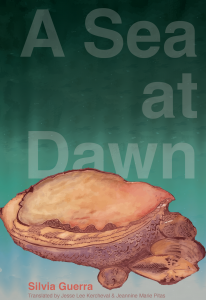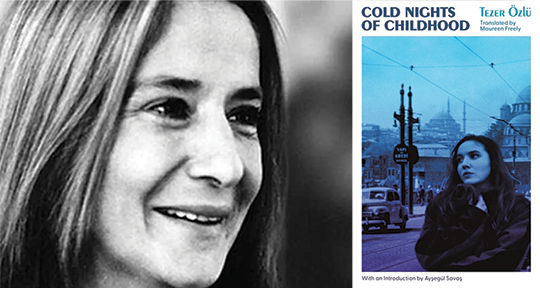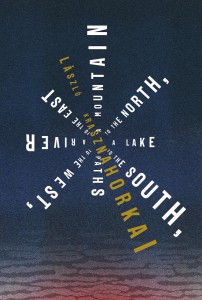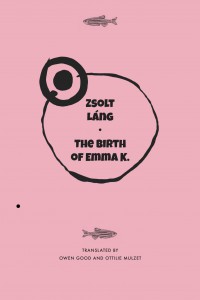This month, we take a look at two brilliant titles that embody the acts of interpretation and evocation. In Silvia Guerra’s poems, nature is given voice in stunning scenes of linguistic complexity. In Keum Suk Gendry-Kim’s retelling of a Korean classic, beloved characters are brought to life in the graphic form.

A Sea at Dawn by Silvia Guerra, translated from the Spanish by Jesse Lee Kercheval and Jeannine Marie Pitas, Eulalia Books, 2023
Review by Sofija Popovska, Editor-at-Large for North Macedonia
What constitutes a translation? Thinkers like Mikhail Bakhtin and Jacques Lacan have argued that every utterance is a deeply intimate expression channeled through shared, culturally standardized verbal structures; that is to say, every time we speak, we are translating.
As with speaking, so with listening, as well. Bakhtin describes the act of conversing with someone else as a (re-)construction of our concepts upon the “alien territory” of the other’s mind. In A Sea at Dawn (Un mar en madrugada), a poetry collection originally published in 2018 and now out in English translation from Eulalia Books, the Uruguayan poet Silvia Guerra manages to push against even these (admittedly broad and inclusive) boundaries of defining translation. In her panoramic, evocative poems, she invites all kinds of life, organic and inorganic, to speak, thereby creating a delightfully strange linguistic landscape that is equally alien and welcoming to the voices of the world, all at once.
Given the vertiginous and heterodox nature of the book itself, it’s helpful to start with the afterword written by the translators Jesse Lee Kercheval and Jeannine Marie Pitas, which illuminates the process of recasting Guerra’s captivating and difficult voice into English, and offers various ways to think about her poetry. For those that have read her in Spanish, it might seem that translating Guerra might seem an exercise in futility, leading to “disappointment and outright lamentation”; however, Kercheval and Pitas’ exquisite translation evokes neither of those things. Instead, contemplating Guerra’s intricate verbal designs allowed the translators to experience “lost and found” moments—instances where English revealed its ability to produce accomplices to Guerra’s “extremely innovative soundscapes” and formulations. Kercheval and Pitas cite an instance where they rediscovered the potential of English words to be “sonically evocative,” in which editor Michelle Gil-Montero offered “hacked in half” as a match for “pensamiento imbricado hendido”—instead of the initial idea, “thought interwoven split.” Later, quoting Walter Benjamin’s notion that “translation makes one’s native language foreign to itself,” Kercheval and Pitas’ afterword shows that reading Guerra in translation not only allows one to experience her mysterious Spanish transformed into English (A Sea at Dawn being a bilingual edition), but leaves our image of English irrevocably altered by her expansive, multipotential approach to language. READ MORE…







